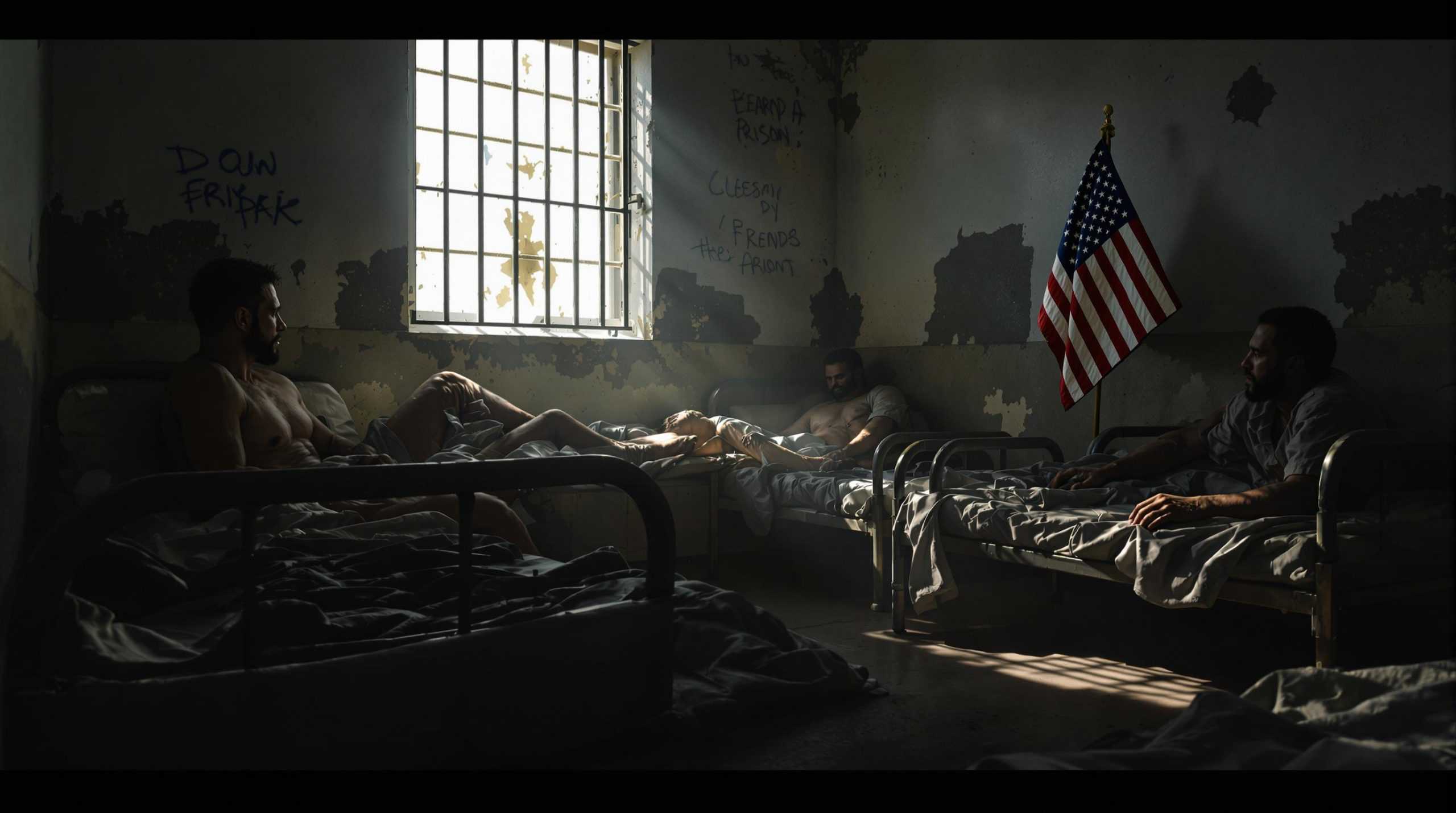- Violence and Deaths: Over 142 homicides occurred in Georgia prisons from 2018 to 2023. Gangs control essential services, creating dangerous environments.
- Severe Understaffing: Vacancy rates exceed 60% in some facilities, leaving prisons without enough officers to maintain safety or oversight.
- Healthcare Failures: With 480 healthcare positions unfilled, inmates face untreated illnesses and injuries, worsening conditions.
- Overcrowding: A 4.4% rise in the prison population from 2022 to 2023 has strained already limited resources.
- Vulnerable Groups at Risk: LGBTQ+ inmates, especially transgender women, face heightened risks of sexual violence due to inadequate protections.
The Solution:
Georgia must urgently address staffing shortages, improve healthcare access, and implement legal reforms to reduce overcrowding. Advocacy groups and public involvement are critical to driving these changes.
Key takeaway: Georgia’s prison system fails to meet constitutional standards, leaving inmates exposed to violence, neglect, and inhumane conditions. Immediate reforms are essential to restore safety and dignity.
Unconstitutional conditions in Georgia prisons, DOJ report says
Major Problems in Georgia’s Prisons
Overcrowding and Staff Shortages
Georgia’s prisons are grappling with a severe staffing shortage, leading to unsafe conditions for both inmates and correctional officers. In some facilities, staffing vacancy rates exceed 60%, leaving a dangerous lack of oversight and control within prison walls [1].
Adding to the strain, the prison population increased by 4.4% from 2022 to 2023, reversing the declines seen during former Gov. Nathan Deal’s tenure [2]. This growth has further stretched limited resources, impacting not just safety but also basic services like medical care.
Poor Healthcare for Prisoners
Healthcare in Georgia’s prisons is in crisis. With around 480 healthcare provider vacancies, some prisons lack essential staff, including medical directors and nurses [3].
From 2016 to 2020, inpatient admissions for illnesses and injuries rose by 45% [3]. Many inmates are left untreated, worsening their conditions. This gap in healthcare also allows gangs to exploit the system’s weaknesses, making conditions even more dangerous.
"People Georgia holds in its prisons are assaulted, stabbed, raped and killed or left to languish inside facilities that are woefully understaffed", said Assistant Attorney General Kristen Clarke [4].
Gang Violence in Prisons
Gang activity has spiraled out of control, with 35 deaths reported in 2023 alone [1]. The lack of staff and oversight has allowed gangs to dominate daily prison life, normalizing violence and extortion. Vulnerable inmates are particularly at risk in this chaotic environment.
| Resource | Impact |
|---|---|
| Phone Access | Limited communication with family and lawyers |
| Shower Facilities | Restricted access to hygiene |
| Food Distribution | Increased food insecurity and extortion |
| Bed Assignments | Unsafe sleeping conditions and violence risks |
A Department of Justice investigation found gangs controlling key aspects of prison operations due to the absence of proper oversight [1]. Transgender women, often placed in male facilities, face heightened risks due to flawed classification systems [1][4]. These failures underscore systemic neglect and a disregard for the safety and rights of inmates.
The inability to address these pressing issues reflects a broader failure to uphold inmates’ constitutional protections.
sbb-itb-7858f51
Legal and Ethical Issues in Georgia Prisons
How Georgia Prisons Violate the Eighth Amendment
Georgia’s prison system has repeatedly failed to meet constitutional standards, showing what legal experts call "deliberate indifference." This term refers to the state’s neglect in addressing known risks to inmate safety. A Department of Justice investigation uncovered widespread violations, with LGBTQ+ inmates particularly vulnerable to sexual violence [1][4].
Key issues include:
- Over 142 homicides recorded between 2018 and 2023 due to unchecked violence
- Lack of basic medical care for inmates
- Insufficient security staffing across facilities
- Gangs controlling resources and essential services
"In America, time in prison should not be a sentence to death, torture or rape. We can’t turn a blind eye to the wretched conditions and wanton violence unfolding in these institutions", said Assistant Attorney General Kristen Clarke [4].
These systemic failures highlight not just constitutional breaches but also a disregard for ethical obligations to ensure humane treatment.
The Government’s Duty to Treat Prisoners Humanely
With nearly 50,000 individuals incarcerated, Georgia operates the fourth-largest prison system in the U.S. [5]. This scale comes with a responsibility to uphold basic standards of safety and dignity. However, the state has fallen short in critical areas, including staffing, gang control, medical care, and protection for vulnerable inmates.
A 2021 civil rights investigation by the DOJ revealed that violence is not just frequent in Georgia prisons – it has become the norm [4][5]. Advocacy groups like Georgia Prisoners’ Speak, alongside federal officials, are calling for immediate reforms to address these failures and restore constitutional and humane conditions within the system.
Solutions to Fix Georgia’s Prison System
Better Staffing and Facilities
With over 60% of correctional officer positions unfilled, Georgia urgently needs to focus on hiring. Offering better pay and comprehensive training programs could help attract and retain staff. But fixing staffing shortages is just one piece of the puzzle – upgrading infrastructure is equally important.
A $436.7 million facility is already in progress, but existing prisons also need attention. Improved surveillance systems, better medical facilities, and modernized cellblocks are crucial to addressing gang activity and overcrowding. These upgrades aren’t just about safety – they’re necessary to fulfill Georgia’s constitutional responsibility to prevent cruel and unusual punishment.
Healthcare is another pressing issue, with 480 positions currently vacant [3]. Telemedicine could provide some relief in the short term, but long-term solutions depend on filling these roles through stronger recruiting efforts.
Changing Laws to Reduce Prison Populations
Georgia should look back to the reforms implemented during Nathan Deal’s administration, which led to a 13% drop in the prison population between 2012 and 2022 [2]. Unfortunately, the trend has reversed, with a 4.4% increase recorded between 2022 and 2023 [2]. Renewing those earlier reform efforts is now more important than ever.
Key legal changes could include:
- Expanding Accountability Courts: These courts redirect nonviolent offenders to treatment programs instead of prison.
- Boosting Educational Opportunities: Offering vocational training and education programs can lower recidivism rates.
- Reclassifying Nonviolent Offenses: Adjusting how offenses like drug possession are categorized could reduce felony convictions.
Advocacy groups like Georgia Prisoners’ Speak are driving these efforts forward. They use public awareness campaigns and provide tools for citizens to engage with lawmakers, aiming to push for real change.
While operational fixes are necessary, reducing the prison population through legal reforms is just as critical. Success will require consistent leadership from the state and active involvement from advocacy groups and the public.
Conclusion: The Need for Change in Georgia Prisons
The Role of Advocacy in Reform
Georgia’s prison system faces serious challenges that urgently need addressing. The Department of Justice’s findings highlight systemic issues that infringe on constitutional rights. Groups like Georgia Prisoners’ Speak (GPS) are shining a light on these violations, advocating for reforms, and giving inmates a platform to be heard.
While organizations like GPS are essential, real change also depends on everyday citizens stepping up and taking action.
How You Can Help
With Georgia’s prison population increasing by 4.4% in 2023 [2], the need for reform has never been greater. Here’s how you can contribute:
- Reach Out to Lawmakers: Use GPS tools to connect with state legislators and urge them to prioritize better staffing and healthcare in prisons. The shortage of healthcare providers is a pressing issue that must be addressed [3].
- Support Proven Programs: Advocate for initiatives like those implemented during Nathan Deal’s administration, which successfully lowered crime rates by 2019 [2].
- Spread Awareness: Stay updated through reliable prison reform organizations and share accurate information about prison conditions with others. Raising awareness builds public pressure for change.
The issues within Georgia’s prisons impact not only the incarcerated but society as a whole. By backing advocacy efforts and demanding accountability, we can push for a system that respects constitutional rights and treats people with dignity.

